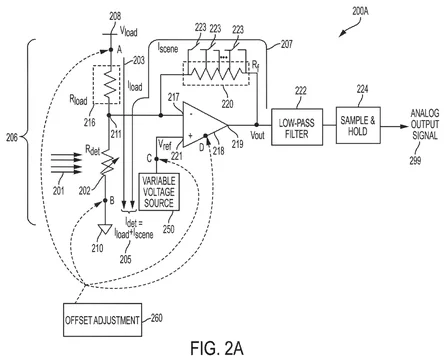
There has been a lot of political talk lately about § 230 of the Communications Decency Act, 47 U.S.C. § 230, which provides immunity for certain kinds of claims related to user-generated content on social media. It's a hot-button, IP-adjacent topic.
Judge Williams today addressed the question of whether § 230 operates to shield Meta / Facebook from the effects of its algorithms. The case is between former Governer Mike Huckabee and Meta, and involves privacy, publicity, false light, and unjust enrichment claims related to ads Facebook hosted that suggested Governor Huckabee was associated with a CBD product:
[Plaintiff claims that t]o promote their Cannabidiol (CBD") products, unidentified third parties posted three advertisements (the "Asserted Advertisements") on Facebook that (1) used Governor Huckabee's name, photograph, and likeness without Governor Huckabee's authorization, (2) made false claims about Governor Huckabee, and (3) falsely attributed certain statements to him. . . .
One of the Asserted Advertisements represented that Governor Huckabee was resigning from his career at Trinity Broadcast Network to pursue the "greater purpose" of endorsing and promoting CBD gummies. . . . Another Asserted Advertisement represented that Governor Huckabee suffered from an autoimmune disease and that "CBD cured" him. . . . Numerous individuals purchased CBD products in light of the Asserted Advertisements. . . . Governor Huckabee is now wrongly associated with the CBD industry.
Notably, Meta and Facebook use algorithms to place these ads in users' news feeds:
Third parties can pay Meta to feature their advertisements in the news feeds of Facebook's users. . . . Advertisers can pay a premium for priority featuring. . . . Meta collects user data to train algorithms to predict what content, including advertisements, will attract and retain users. . . . These algorithms determine which advertisements will feature at the top of users' news feeds. . . .
Predictably, Meta moved to dismiss, asserted that § 230 applies and renders it immune to liability.
The Court, however, held that § 230 protection does not apply because using the algorithms to promote social media posts renders Meta itself an "information content provider," rather than a straightforward host of third-party content:
Meta is . . . an "information content provider." In Anderson v. TikTok, Inc., the Third Circuit explained that TikTok's for-you-page ("FYP") "algorithm decides on the third-party speech that will be included in or excluded from a compilation-and then organizes and presents the included items on users' FYP." 116 F.4th 180, 184 (3d Cir. 2024) (cleaned up). The Third Circuit held that the decisions made by TikTok's algorithm with regard to the content at issue were "TikTok's own expressive activities], and thus its first-party speech." Id. (cleaned up). Such speech rendered TikTok an "information content provider" and thus Section 230 did "not bar [the plaintiff's] claims." Id.
Here, Governor Huckabee similarly alleges that "Meta collects user data to train machine-learning algorithms to predict what content will keep and attract users" and "decides which posts appear at the top of users' newsfeed to maximize exposure to certain posts, including advertisements." . . . These decisions are Meta's, as they were TikTok's, "own expressive activit[ies]" and "first-party speech." See Anderson, 116 F.4th at 183. Such speech therefore renders Meta an "information content provider" and not immune to the Governor's claims.
Mike Huckabee v. Meta Platforms, Inc., C.A. No. 24-773-GBW (D. Del. Nov. 18, 2024).
One interesting point here is that this wasn't an instance of Meta deciding what user-generated content its users would see, like the Third Circuit's TikTok case. The allegations here relate to advertisements on Meta, and algorithms for deciding what ads the users will see.
The Court rejected each of Meta's arguments that § 230 apples. It held that even advertisement-related algorithmic activity can be enough to make Meta an information content provider:
Meta . . . contends that Governor Huckabee only alleges that "Meta approved, maintained, and hosted the challenged advertisements." . . . However, the Governor alleged more, including the algorithmic activity discussed above.
No coordination with advertisers is required:
Meta contends that Governor Huckabee did not allege "that Meta coordinated with the third-party advertisers, participated in the alleged doctoring of images, or drafted any of the advertisements' content." D.I. 18 at 10. However, while such activity may be sufficient to render Meta an information content provider, such activity is not necessary to render Meta an information content provider.
The Court also found that the fact that advertisers can partially control targeting of the ads does not mean that § 230 applies:
Meta asserts that Governor Huckabee alleges that "Meta allows its advertisers to target their advertisements as broadly or narrowly as they wish." . . . However, such targeting only mitigates, and does not eliminate, the relative extent to which Meta is an information content provider. In other words, Meta remains responsible "in part" and immunity cannot apply here, at least at the motion to dismiss stage. See 47 U.S.C. § 230(f)(3) ("The term 'information content provider' means any person or entity that is responsible, in whole or in part, for the creation or development of information..." (emphasis added)).
In the end, though, the Court's decision seems to be dicta. I don't think the Court actually had to reach § 230 immunity, because it dismissed each of the plaintiff's claims on their merits for various other reasons—and it could have done that regardless of the outcome on § 230.
If you enjoyed this post, consider subscribing to receive free e-mail updates about new posts.






